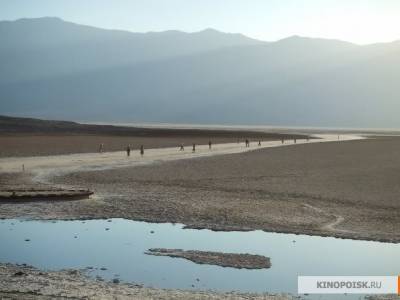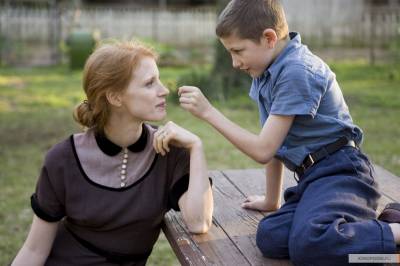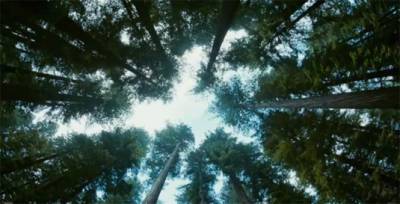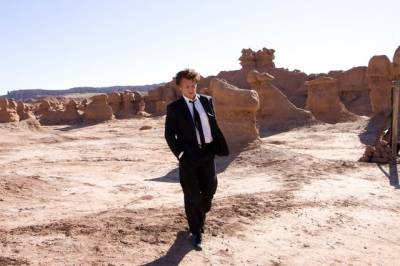This year Cannes Festival was
presented by a more powerful set of pictures in comparison with year 2010. The
Golden Palm went to the movie by Terrence Malick "A tree of life”, which is the
first to be shown in Russia. So I had nothing more but to visit the theatre to
examine what was good in it.
At first, I should say that a
picture of that power hasn’t got the award in Europe for a very long time. The
first feature that strikes the eye is a great number of images thrown by the
author into the viewers’ minds. Some images were left obscure by me; sometimes the
speed of their appearance on the screen is astonishing. And now a few words
about the plot.
Though the picture lasts for 2.5
hours, the plot is scanty. A 50’s American family loses a boy of 19, but is
left with two other boys. The pre-history of the events is told by the elder brother
who wanders about reminiscing his childhood and his parents. This is it. But
the main and the most magnificent thing here is how the characters are
described. The father seems to be a man who is unsatisfied with his life – he’s
always dreamed of being a composer, but failed to – he’s a middle class
manager. Hi oppresses his family and make the boys call him sir, and behave as
humble as possible. This is the first – and outer one – conflict in the picture.
His attitude to his family finally leads to the hatred from his sons. All the
way through the film we hear words which are said by speechless characters, and
the thoughts of the father can be summed up in the following way – be harsh in
life, and only then you see a success. No
one will ever give you a hand, so try to be as strong as possible.
The second conflict consists in the relationships
between the parents. The author leads us to this understanding during the
entire movie. The family is quite a religious one and the whole movie seems to
have strong allusions to the Bible. The father here is a symbol for delusion and
the mother – of faith. Just during the climax when we see how true
understanding of life comes to the father and he apologizes for how he behaved
with his children, we hear the inner voice of the story-teller (the elder
brother): "Father, Mother. Always you wrestle inside me. Always you will”. He
feels himself to be an embodiment of the ideological conflict between the
parents. This projection of the outer conflict into the inner one plays a great
role in his vision of the universe.
We don’t see the death of the boy,
but it seems to have no importance. The characters always appeal to God asking
questions about their existence. The answers they get we see in images crowding
the film up to the end. The final set of pictures was the most powerful one,
and in the first part of the movie we see a 20-minutes insight into the
creation of the universe – the answer for numerous questions of the family
about why God allowed their son to die. The whole picture is a dialogue with
God, and it is full of mythological, religious, literature and philosophic
motives. To my mind the movie is not about the grief of losing a dear person,
but about eternal issues interlacing with our human vision of life – about soul’s
immortality and people’s wrong perception of existence, about time and space,
about faith and doom.
Terrence Malick makes a movie once
in a decade, and this one is really a movie to be thought over for the next ten
years, when he probably pleases us with another masterpiece.  
 

| 











